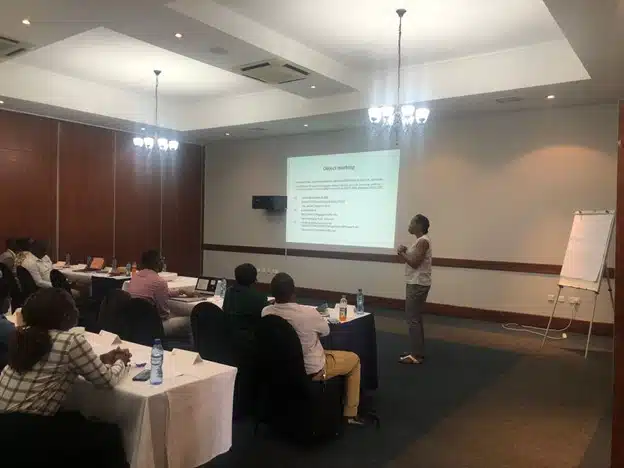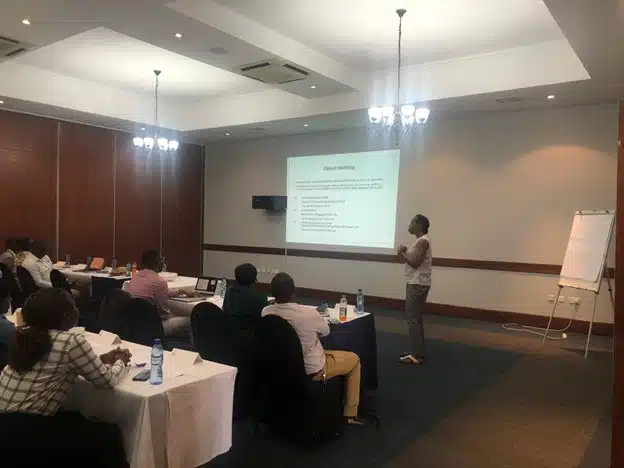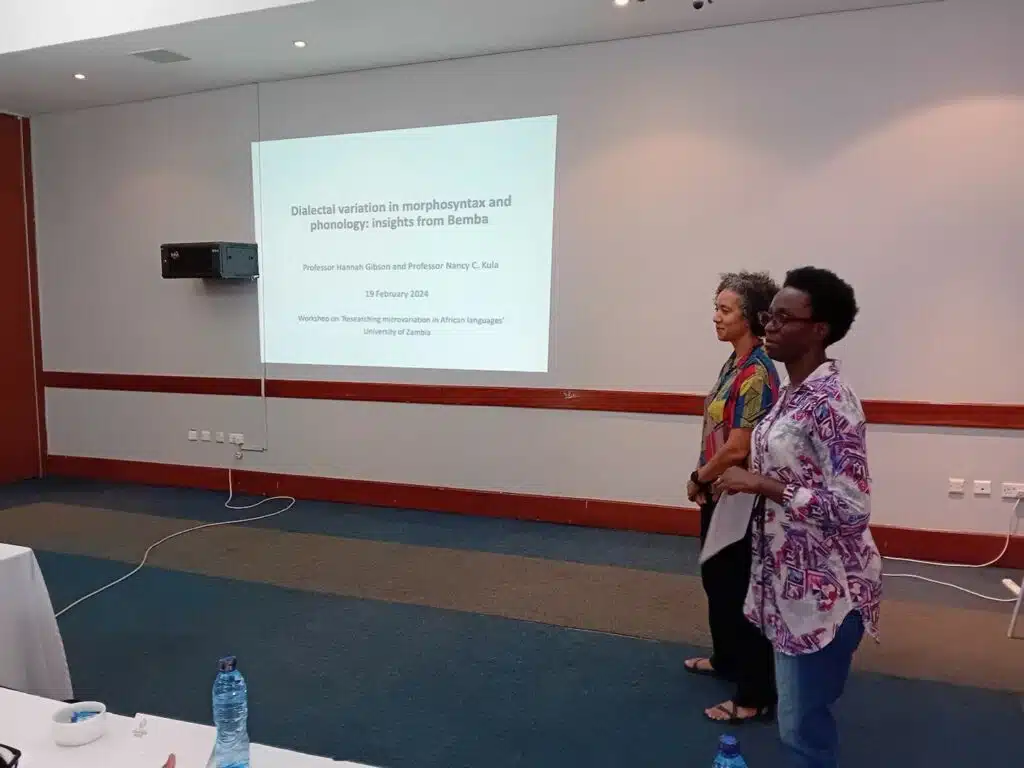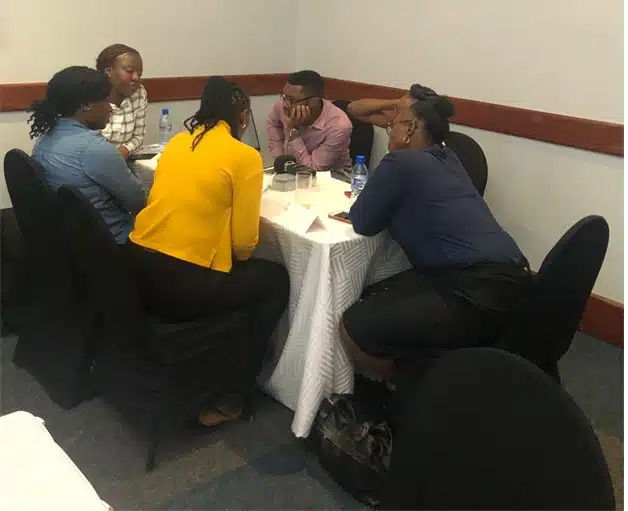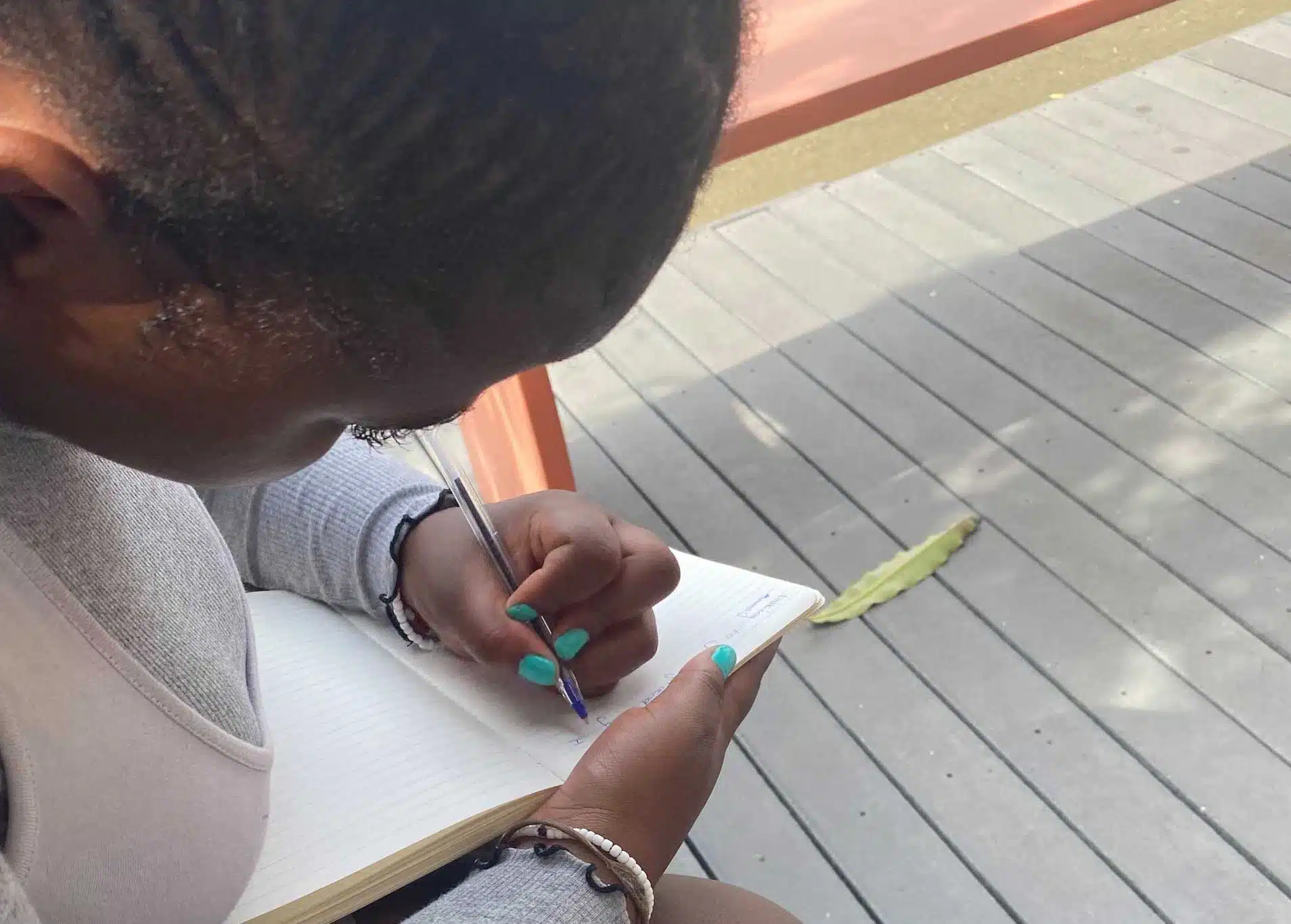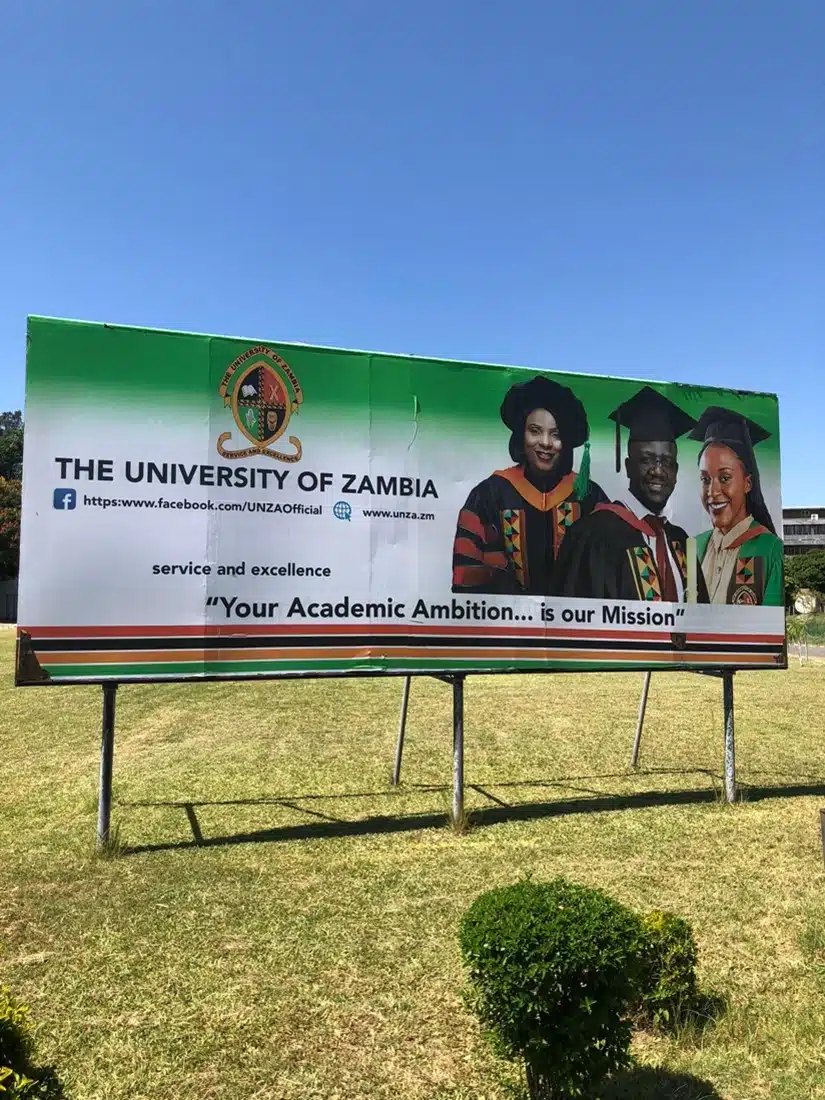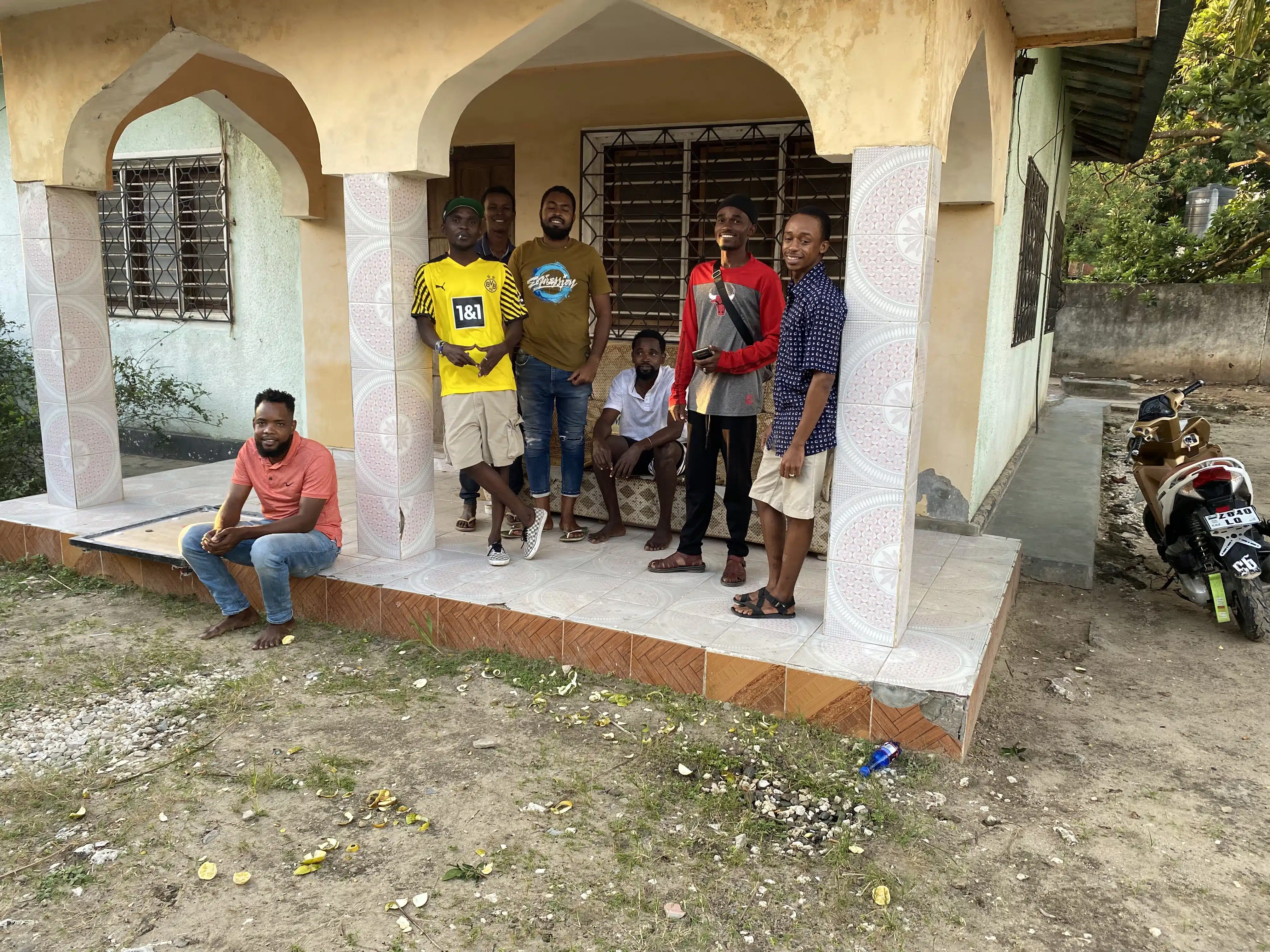Research Impact workshop and online research methods seminar in Zambia
Hannah, Nancy, and Elvis organised a workshop and seminar in Zambia. Here are some highlights from both events.
We visited Zambia in February 2024. As part of the visit, we organised a workshop under the theme “Researching microvariation in African languages”, which presented an overview of the field of microvariation, looking at dialectal variation in Eastern and Southern African languages.
The workshop highlights different methodological approaches to the study of variation in Bantu languages, dialectal variation in Bemba, and the position and views towards youth languages. There were also presentations on some of the emerging findings from two research projects by two faculty members from the University of Zambia, Dr Sitwe Benson Mkandewire and Dr Hambaba Jimaima. The workshop was attended by students and faculty members from the University of Zambia and several other tertiary institutions in Lusaka.
This workshop is part of two ongoing research projects. Below are summaries of the projects.
The project ‘Microvariation and youth language practices in Africa’ is a collaborative research project bringing together researchers based at the University of Essex (UK), Johannes Gutenberg Universität-Mainz (Germany), Great Zimbabwe University (Zimbabwe), Eswatini University (Eswatini) and Kenyatta University (Kenya). The project runs from 2022 to 2025 and examines morphosyntactic microvariation in African youth language practices in Eastern, Central and Southern Africa.
The project ‘Dialectology in Bantu Languages: Variation in Bemba across phonology and morphosyntax’ examines dialectal variation in Bemba to better understand the role of language contact in the emergence of dialectal variation, as well as how different aspects of grammar–i.e., phonology and morphosyntax–vary and/or remain constant across dialects.
The discussions after the presentations addressed key issues about the age groups of the users of youth language practices which are between 16 – 35, and that various age brackets may have different types of youth language practices. Cliques within school contexts, for instance, may have different types of youth language practices. Various communicative contexts and interlocutors are also said to condition language choices and youth language practices. Cosmopolitan youths seem to be gravitating towards English; sometimes they don’t know their languages or the languages of their parents. Some further questions for us to think about include: “Is there an age when people stop speaking youth languages?” and “How should researchers deal with language contact?”
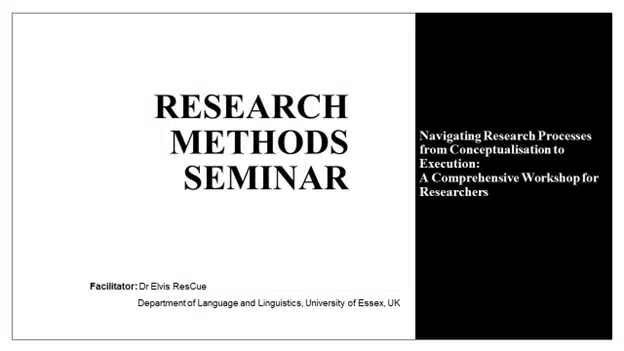
In addition to the workshop, Elvis gave an online research seminar in March 2024 with the title “Navigating Research Processes from Conceptualisation to Execution: A Comprehensive Workshop for Researchers”. The workshop was attended by 116 students and faculty members from the University of Zambia and other sister tertiary institutions in Lusaka.
The seminar covered topics on research conceptualisation, how to choose a research topic and the approaches to conducting research (qualitative, quantitative, and mixed methods). Other topics covered included ethical considerations and how to execute research from start to finish. It was an enriching seminar that empowered participants to embark on their research journey confidently and competently.
Both the workshop and the seminar were great successes with lots of stimulating discussions on language practices and research execution.

